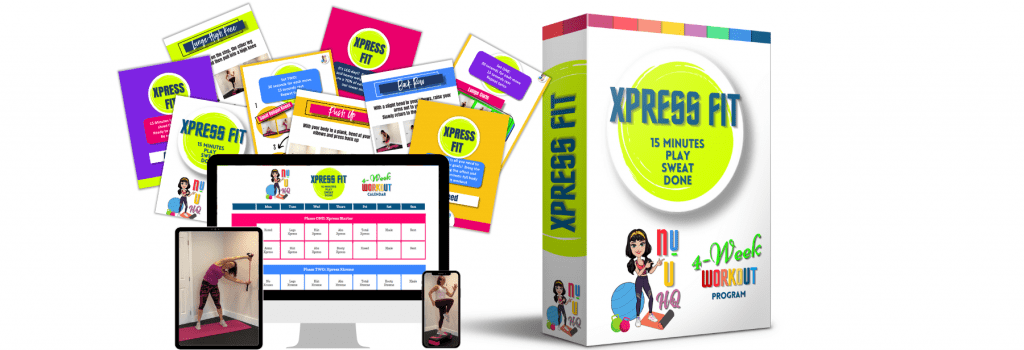We all know that an exercise program is good for our bodies, but did you know that it's also great for our mental health?
Exercise can help improve moods, reduce stress levels, and even fight depression. So if you're looking for a way to boost your mood and feel better mentally, start exercising! You may be surprised at how much of a difference any physical activity makes to your body and mental energy.
Most people know that exercise is good for them, but they don't know the specific benefits of exercise and how it could combat mental illness. Did you know that there are dozens of physiological benefits to exercise. From reducing your risk of heart disease to improving your mental health, regular exercise can do wonders for your body and mind.
When you don't know the physiological benefits of exercise, it's hard to make time for it in your day. You might feel like you're just spinning your wheels.
Exercise is one of the simplest things you can do to improve your health and well-being. Whether you're a beginner or an experienced athlete, there's a type of exercise that's perfect for you.
After reading this, you'll have a clear understanding of the many ways that exercise improves your body and mental health. You'll be more likely to make time for a workout, because you'll see how much good it does for you and all the mental health benefits it can deliver.
Mental health benefits when doing regular exercise
Most people know that exercise is good for their physical health, and you don't need to be a mental health professional to know that it can also have a profound impact on your mental state.
Exercise has been shown to improve mood, reduce anxiety and stress, improve sleep, increase concentration and boost self-esteem. It can also help to reduce the symptoms of depression. And because it increases levels of serotonin and other brain chemicals, exercise can have an antidepressant effect.
In addition, exercise can help to improve cognitive function and memory. So if you're feeling down or struggling with mental illness, consider going for a brisk walk, hitting the gym, or taking up a new sport. The benefits of exercise are well worth the effort! Even a little bit of activity can make a big difference.
Reduce stress and anxiety
Research suggests that exercise is a great way to reduce stress and anxiety. When you exercise, your body releases endorphins, which have mood-boosting effects to combat the stress hormones and help you have a better stress response.
Exercise can also help to increase energy levels and improve focus, both of which can be helpful in managing stress and anxiety. If you're feeling stressed or anxious, try getting some exercise. Even a moderate intensity activity like brisk walking around the block can make a difference.
Improves sleep
People who are physically active tend to fall asleep more quickly and sleep more soundly than sedentary people. Exercise also helps to regulate the body's internal clock, which can be beneficial for people who have trouble sleeping. As a result, doing more exercise is a simple and effective way to improve sleep quality.
Increases concentration
Regular exercise and concentration are linked. A growing body of research shows that physical activities enhance executive function, which is the set of cognitive skills that enable us to pay attention, control our impulses and manage our time effectively. For instance, one study found that just 20 minutes of exercise can immediately improve executive function.
Other research has shown the health benefits of exercise can help students maintain their focus during lectures and tests, and it can also improve task performance in office workers. The mental health benefits of exercise on concentration appear to be due to the fact that physical activity increases blood flow to the brain, blood flow to the brain, delivering more oxygen and nutrients. and promotes the growth of new brain cells and improves mental well-being.
In addition, physical activity enhances the ability of the brain to store information in memory and retrieve it when needed. So if you're looking for a way to boost your concentration, add some physical activity to your daily routine even when you have a busy schedule.
Exercise also stimulates the release of feel-good chemicals like endorphins and dopamine, which can improve mood and cognitive function. Whatever the mechanism, there's no doubt if you exercise regularly, it can be a powerful tool for concentration. So next time you're struggling to focus, get up and move – your brain will thank you for it!
Boosts self-esteem
When you exercise regularly, your body releases endorphins. Endorphins are hormones that block pain signals from the brain. They also produce a sense of euphoria, which can lead to improved self-esteem.
Regular exercise helps to improve cardiovascular health, increase strength and flexibility, and reduce stress levels. All of these factors can contribute to an increased sense of well-being and self-confidence.
So if you're looking for a way to boost your self-esteem, be sure to include physical activity as part of your daily routine. You'll not only look and feel better, but you'll also be setting yourself up for a lifetime of good health and happiness.
Mental resilience
Fitness training can help you be more physically tough, that's a given. When you do a lot of fitness training, your body gets tougher and can handle more loads and more pain.
The same thing happens with your mind.
When it is used to doing hard things, it becomes stronger and can handle more stress. Certainly, training isn't all there is to mental resilience and facing challenges, but it does help!
If you are just getting into training, do expect to feel this very soon!
Mind-body connection
Nowadays, most people are disconnected from their bodies. We lead busy lives and are constantly on the go.
We eat unhealthy foods, don't get enough physical activity, and don't take the time to connect with our bodies.
Perhaps, one of the best ways to boost your mind-body connection is through training.
When you engage in regular physical activity, your body and brain start working together in a more coordinated way, to ultimately overcome the load they are going through.
This improved communication can lead to better overall health and well-being, as well as enhanced cognitive function.
In case you feel like you’re neglecting your body… Get your butt to the gym!
How to get started with exercise if you're struggling with your mental health
It can be tough to get started with exercise when you're struggling with your mental health. After all, it can be hard enough to muster up the energy to take care of yourself, let alone add in physical activity. However, exercise can be hugely beneficial for your mental wellbeing. It can help to improve your mood, increase energy levels, and reduce stress and anxiety.
Not sure where to start? Below are a few tips to help you get started with exercise. Or you can join our Xpress Fit program. It is a 4-week exercise program designed to target your whole body. You can improve your physical condition and see the positive effect of this exercise plan which takes just 15 minutes a day.
Choose a physical activity that you enjoy
If you hate running, there's no point in forcing yourself to do it. There are plenty of other options out there, so find an activity that you actually enjoy. This could be anything from walking to swimming to dancing.
Start small
Don't try to go from zero to 100 overnight. Start with a few minutes of physical activity a day and gradually build up from there.
Set realistic goals
Trying to lose 20 pounds in a month is setting yourself up for failure. Set realistic goals that you can actually achieve. For example, aim to walk for 30 minutes three times a week.
Find a support system
Having people to support and motivate you can make all the difference. See if there are any local exercise groups or classes that you can join, or ask a friend or family member to exercises with you. Getting started with physical activity doesn't have to be impossible – just take it one step at a time.
The importance of moderation when it comes to exercise and mental health
Moderate physical activity is often overlooked when it comes to maintaining mental health. While it is true that moderate exercise will not have the same impact as vigorous activities, it can still play an important role in keeping your mind healthy. Physical activity has been shown to improve sleep quality, increase brain function, and reduce stress levels.
While moderate exercise may not be the most exciting form of workout, it can still be a valuable part of maintaining your mental well-being. So next time you are looking for a way to improve your mood or reduce stress, consider any physical activity as a means to do so.
Tips for staying motivated to exercise, especially when you're struggling mentally
It can be tough to stay motivated to exercise, especially when you're struggling mentally. But there are some things you can do to make it easier.
First, set yourself some realistic goals. If you're just starting out, don't try to do too much too soon. Set small goals that you can realistically achieve, and then build on them.
Secondly, find a physical activity that you enjoy and stick with it. If you hate running, don't force yourself to do it just because someone told you it's good for you. You're more likely to stick with something if you actually enjoy it.
Finally, try to exercise with friends or family members. Having someone to support and encourage you can make all the difference. If you keep these tips in mind, staying motivated to exercise and doing a physical activity every day will be a lot easier.
Am I too old to start a new exercise routine?

As we age, our bodies go through a lot of changes. We might not be as flexible as we once were, and we might not have the same level of energy. However, that doesn’t mean that we can’t stay physically active and healthy as we get older.
Physical exercise is an important part of aging well, and there are plenty of ways to stay fit no matter your age or ability level. Exercise helps to keep our hearts healthy, our bones strong, and our muscles toned. Walking, swimming, and biking are all great low-impact exercises that can help to improve your cardiovascular health. Strength training is also important for maintaining muscle mass and bone density. Any exercise program or exercise class you can find to help you exercise regularly will improve health problems. If you're short on time, our Xpress Fit program is just what you need.
And don’t forget about balance exercises! It can help to improve our balance and flexibility, making us less likely to fall and sustain an injury. Balance exercises are crucial for preventing falls, which can be a serious problem for older adults.
However, as we age, we may find that we don’t have the same energy levels that we once did. We may also have to deal with chronic health conditions that make physical exercise more difficult. But it’s important to remember that even a moderate intensity exercise can have significant benefits for our health and help prevent mental health problems.
So whatever your age or fitness level, make sure to find some way to stay active as you age. It’s good for your body and improve mental health conditions! Don’t be discouraged—just start small and build up gradually.
What to do if you feel like your exercise routine is causing more harm than good
If you're feeling like your exercise plan is causing more harm than good, it's important to listen to your body and make some adjustments.
Make sure that you're not pushing yourself too hard. It's important to exercise at a level that feels challenging but manageable, and not to push yourself to the point of exhaustion. If you're feeling pain or significant discomfort, it's also important to ease off and consult with a doctor or physical therapist to rule out any underlying injuries.
Be sure to mix up your routine from time to time to avoid boredom and injury. Incorporating a variety of physical activity will not only keep things interesting, but it will also help ensure that you're working different muscle groups and avoiding overuse which may cause injuries. With a few tweaks, you can get back on track and enjoy the many benefits of exercise to improve your physical health as well as having better mental health.
What if I don't have time to exercise?
Despite our best intentions, it can be difficult to find the time to exercise on a regular basis. Life has a way of getting in the way, and before we know it, weeks have gone by without us so much as breaking a sweat.
Recent research has shown that we may only need to exercise for 150 minutes a week – or about 20 minutes a day – to see significant health benefits. And while that 20 minutes may seem like a lot, there are plenty of ways to fit it into our busy lives.
Why not check out our Xpress Fit program. This 4-week program targets the whole body and you only need 15 minutes a day.
Final thoughts
So, there you have it! Exercise is not only great for our physical health and wellbeing, but it might also be really good for better mental health as well. This should come as no surprise to those of us who have experienced the intra and post-workout high.
All in all, if you are looking for an easy way to boost mental health, don’t hesitate to include regular training, or even moderate physical activity in your schedule!
What’s your take on training and mental health issues
How did training change you, psychologically
Comment below!







